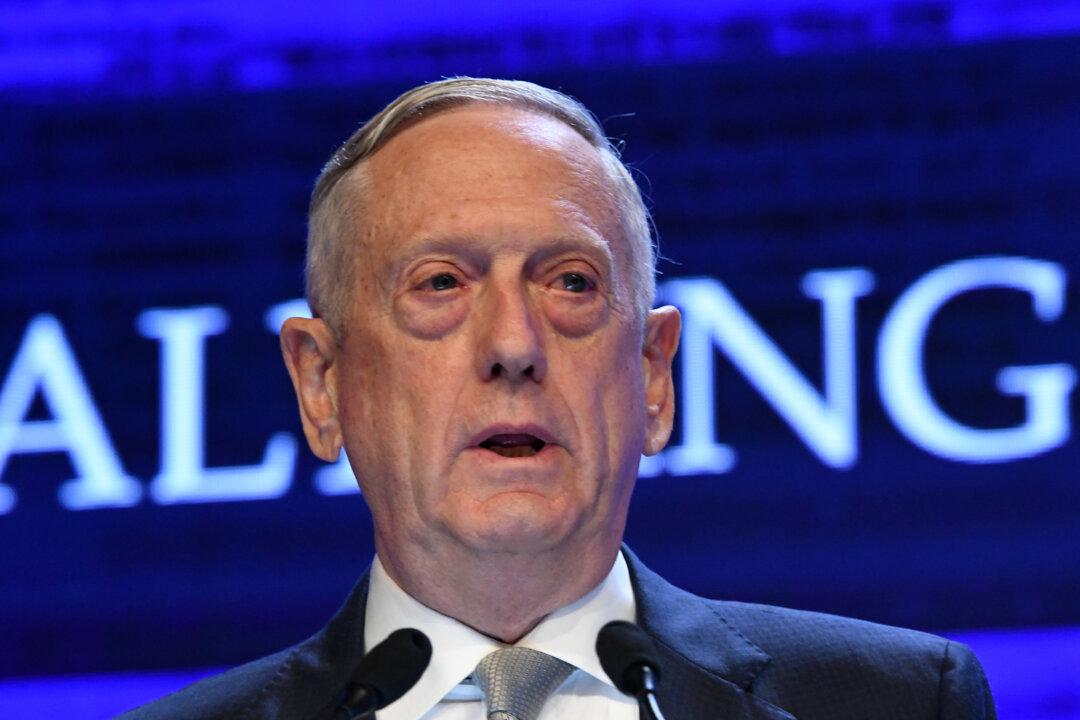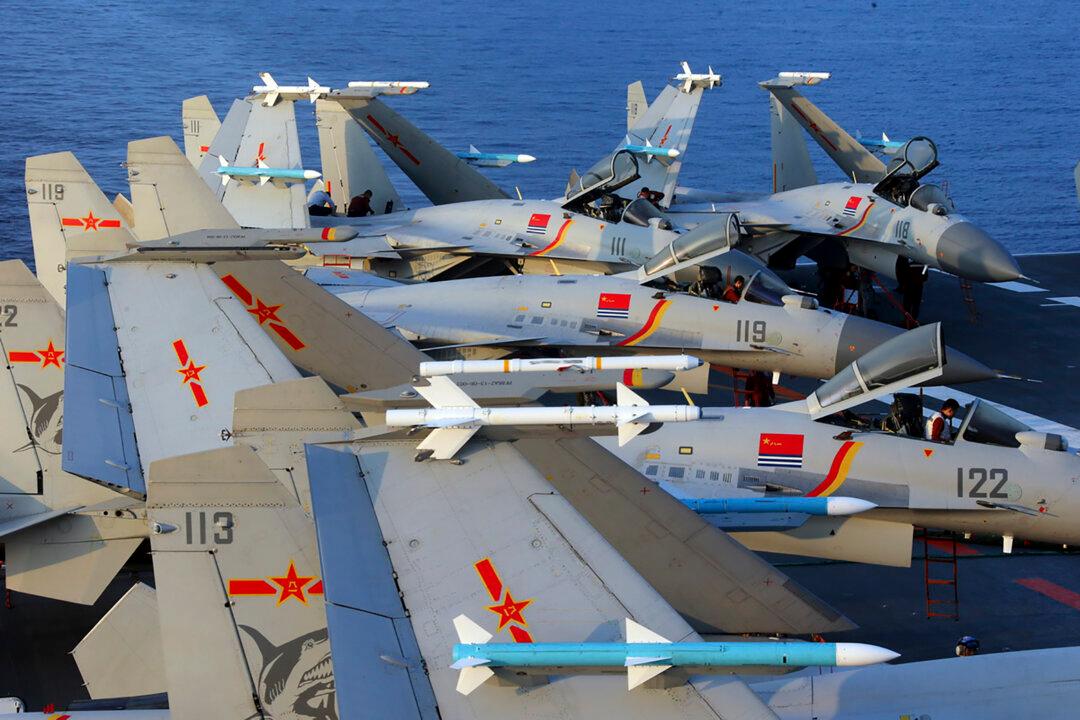In a high profile speech in Asia, U.S. Defense Secretary James Mattis blasted China for committing “intimidation and coercion” in the South China Sea and said the United States will make sure Beijing’s aggression is met with “consequences.”
On Saturday Mattis spoke at the Shangri-La Dialogue, an annual security summit in Singapore that each year attracts speakers who are the top policymakers in the defense and security community of countries across the western Pacific.




